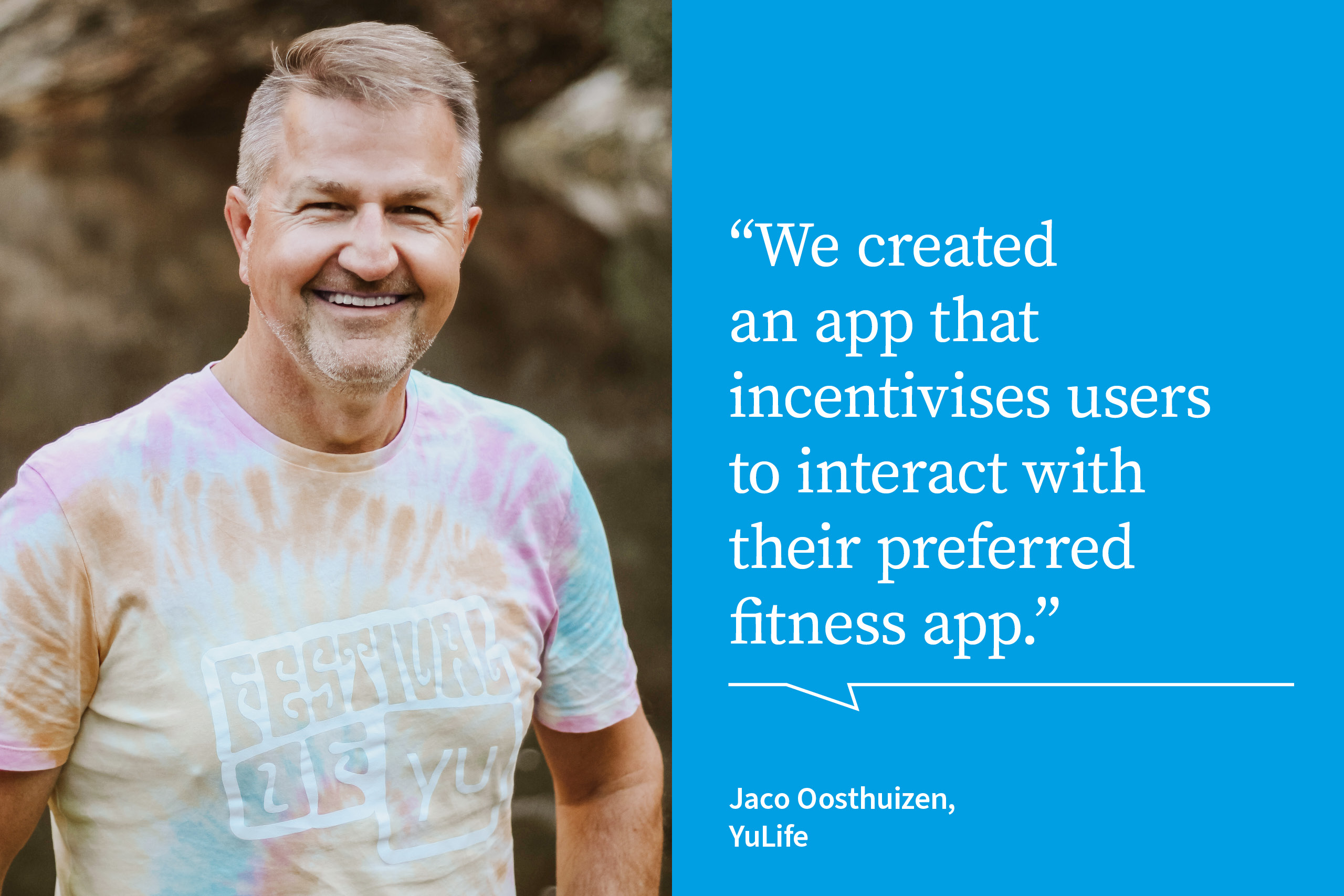Combining gamification and AI to improve insurance outcomes
Leading insurtech startups are using artificial intelligence (AI) and machine learning to reimagine customers’ insurance journeys, deploying these technologies in gamification strategies to improve health and life insurance outcomes.
What if insurance were a fun, joyful experience? And what if policyholders didn’t just benefit from it in the worst of times, but every day? YuLife, a tech-driven financial services firm, is using gamification to improve engagement with its digital platform that encourages users to make small, incremental improvements to their health and wellbeing. The firm was an early adopter of this innovative approach that drives positive consumer behaviours, resulting in a quadruple-win for users, employer groups, insurers and society.
“Our app has been well-received in the group protection space, where we focus on offering group life and income protection solutions to employer groups,” says Jaco Oosthuizen, co-founder and MD of YuLife South Africa. The firm is among a growing number of insurtech businesses that started out unconstrained by legacy systems – it is entirely digital but has refrained from dictating how users interact with its platform.
Instead of reinventing the wheel, the platform allows users to stick with their preferred third-party apps and data. As Oosthuizen points out, “We did not set out to replicate any of the other fitness and health apps that our clients were already using."

Gamification is emerging as a popular tool to engage and motivate app users. According to Oosthuizen, approximately half of its current users engage with the app daily, ranking the app alongside some of the most successful social media apps on this measure, and putting it among the most engaged insurance apps worldwide.
User engagement is a by-product of good game design. In this case, the insurer created an app-based universe for which users develop a unique gaming identity; they can then ‘travel’ through this virtual world known as the Yuniverse, compare their fitness and wellness efforts with those of other users, and earn digital rewards for achieving fitness- and other wellness-related goals.
“We looked at gaming elements from globally popular app games and leveraged some of these to encourage user engagement and create a competitive environment within employer user groups,” Oosthuizen says. Users can, for example, ‘duel’ with other users – and track their progress on company-wide group leader boards.
YuLife stands out from its peers for its efforts to measure the impact of gamification on insurance outcomes. A Forrester Total Economic Impact™ Study commissioned by the firm shows a 180% return on investment on the cost of the application, thanks to reduced absenteeism and improved presenteeism alone.
The firm benefits from engagement data, gathered over multiple years from over 1,200 employer groups and more than 750,000 users, mostly in the United Kingdom (UK), to illustrate how gamification impacts health. It is common for new users to double their steps after downloading the app, or to triple-up on the time they spend on wellness activities such as meditation.
Aside from developing unique industry-specific solutions, the firm has embarked on a project alongside the University of Essex in the UK, to create an ‘algorithm of you’. This algorithm uses the individual app user’s data to predict future health outcomes. Such data could be extrapolated across an employer group or industry and fed back into underwriting models to deliver more accurate pricing over time.
So, what is it about gamification that induces positive user behaviour? The ability to monitor user activities in real time and to send push notifications as and when necessary is key. “More than half of our app users are still active 12 months after sign-up. We have thought hard about the game mechanics, and have a team dedicated to designing the game to ensure ongoing engagement by offering immediate incentives should user status suggest flagging interest,” Oosthuizen says.
A pragmatic approach to AI is essential. In this case, the insurer has built algorithms to keep people engaged and is using AI to continually improve this engagement. Future applications include relying fully on AI for user engagement and re-engagement; feeding AI-linked fitness and well-being improvements into personalised underwriting; and offering more comprehensive AI-backed client services.
“We are in the initial phases of AI and gamification in insurance. Insurers risk losing their competitive edge if they do not invest in AI and machine learning, and stay up to speed with the latest client engagement-focused predictive analytics and modelling."
A seamless user experience is non-negotiable in today’s digital insurance world; but to stay ahead of their insurtech competitors, firms will have to focus on more immersive gamification and taking their user interfaces to the next level.
YuLife is a tech-driven financial services provider on a mission to inspire life and turn financial products into a force for good. By harnessing the power of technology and the latest behavioural science, YuLife’s insurance model focuses on risk prevention, not just claims compensation. The company is transforming the employee benefits market by rewarding employees for healthy living, supporting mental, physical and financial well-being and helping foster healthier, happier and more motivated teams. YuLife is headquartered in London and backed by global insurers and venture capital.
User questions
Answered questions
Unanswered questions
Views: 1171
Downloads: 0
| 0 % | |
| 0 % | |
| 0 % | |
| 0 % | |
| 0 % |
Page is favored by 0 user.
Contact inquiries: 0


